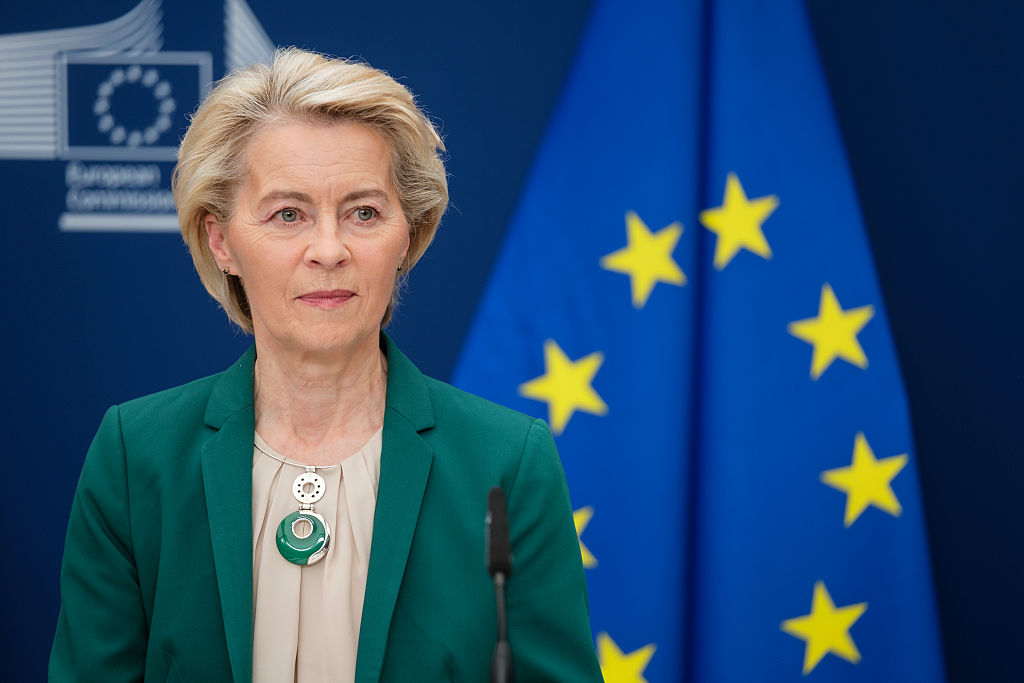US tech giants will abandon the EU if the Digital Services Act (DSA) is not amended, three members of a visiting Republican congressional delegation told Brussels Signal July 28.
Companies like Apple, Microsoft, Amazon, and Meta could withdraw from the EU altogether if the law remains unchanged, warned Republican Representative Scott Fitzgerald, a member of the House antitrust committee.
“Absolutely,” he responded, when asked if there was a real risk of US companies exiting.
“There’s seven corporations that are currently listed as gatekeepers by the DSA, and six of the seven are American corporations who are the innovators. They’re the ones that are driving the train on just about everything we do,” said Fitzgerald.
The delegation — which included Republican House Judiciary Committee chair Jim Jordan and Representatives Fitzgerald and another Republican Representative, Kevin Kiley — called the DSA “censorship legislation”, saying it threatens innovation, political expression, and US–EU digital cooperation.
They hoped upcoming EU–US trade negotiations would address the DSA, they said.
The European Commission, however, has repeatedly insisted the regulation is not related to trade or tariffs.
The act, adopted in 2022, is “not a trade regulation,” says the Commission, but a legal framework intended to “ensure a safer and more accountable online environment”.
It applies to platforms operating in the EU, regardless of origin or ownership, the Commission says. Tariffs, also known as import duties, instead target countries that export the goods to the EU.
Still, Jordan said the law’s impact on US companies could force it onto the trade agenda.
“Well, we hope so,” he said. “I think US Secretary [of Commerce, Howard] Lutnick said earlier this week that the DSA, the DMA [Digital Markets Act] are attacks on American companies. So there’s that element that is certainly part of any trade negotiations that are going to [include] the details of the trade negotiations that move forward,” said the Ohio congressman.
Jordan argued the DSA runs counter to free speech protections enshrined in the US Constitution.
“We think it’s censorship, and we’re against that,” he said. “One of the hallmarks of Western civilisation is the ability to debate. If you can’t settle disputes via debate, the alternative is scary.”
“We have in our country the First Amendment. And I would argue the most important liberty under that First Amendment is our right to talk and not have government try to chill that speech, target that speech, or target you for things you say,” he added.
“When you look at history, it is never the good guys who want censorship. It is always the bad guys. And it typically starts off with, quote, good intentions… but when it gets into political speech, we got a real problem,” Jordan continued.
He acknowledged the law’s stated purpose — including protecting minors and addressing online violence — but said it has gone further than these objectives.
“We agree with all of those things. But what we see is it’s being used to silence criticism of political officials and genuine debate about policy,” said Jordan.
Representative Kiley said the EU’s regulatory environment was delaying access to new technologies in Europe.
“That’s a really important point that should be emphasised,” he said.
“Folks here in Europe are being hamstrung because of this right now,” Kiley added.
He referred to Apple’s June 2025 decision not to launch its new artificial intelligence features — Apple Intelligence — in the EU at the same time as its US rollout.
“All the latest AI models, they’re a lot slower to get here to the EU,” he said.
“So not only can ordinary citizens not use them, but your developers can’t use them either. And it’s harder for them to compete against other foreign competitors,” argued Kiley.
“I think those [Big Tech] corporations will pull back. And you won’t see the types of innovation you’re seeing in the States right now, certainly in the European Union”, Jordan added.





